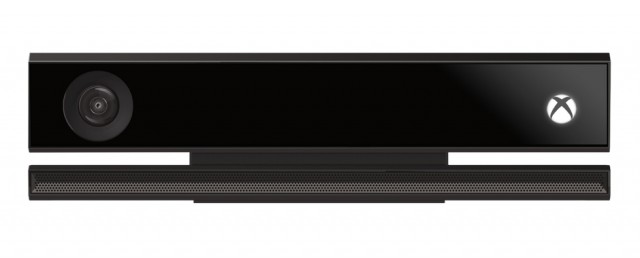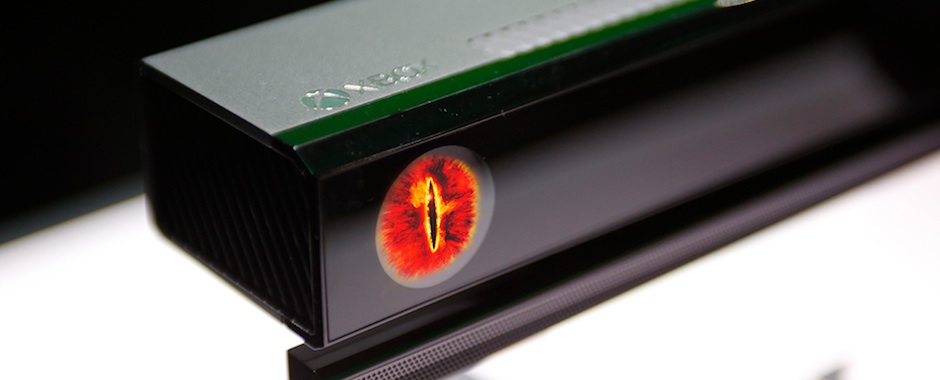There are very few times that you can be more upset with a video game company than we usually are with EA. With EA’s long history of nickel and diming gamers with season passes, microtransactions, and other quick-buck schemes, it’s hard to imagine a less friendly consumer company. Sadly, Microsoft has stepped up to EA’s plate with the Xbox One, rivalling their partners in anti-consumer measures. The Xbox One utilizes specialized technology to make life a little more difficult for gamers. There is only one way to approach this technical nightmare, and that’s to break it down to its basic components.
We all remember the release of the Kinect for Xbox 360. It was Microsoft’s answer to Nintendo’s Wii remote, but other than making us all look like spastic fools, it wasn’t actually mandatory. With the advent of the Xbox One, each and every console will come with a Kinect, and it will always be on, watching you. That isn’t a joke as, according to the Kinect patent information, this model will constantly monitor you like a low-grade HAL. What’s the purpose of this? Perhaps Microsoft just wants to see how dumb everyone looks when playing Zumba or Just Dance. The actual answer, however, is in the patent information. In addition to constantly monitoring the room, the new Kinect will send updates to the Xbox server on the number of people in your room. The purpose for this is both terrifying and a pain: licensing. For example, when you are watching a movie, you are purchasing a license to watch it. If the Kinect detects that there are more people than what the license allows, it will stop the movie and give you the option to pay for the additional viewers. This is all managed by the Microsoft server, which, as you will soon learn, is really the centre of this anti-consumerism.

The Xbox One servers, all 300,000 of them, in addition to watching your every move, is also in control of your game licenses. That’s right, licenses. The disk is no longer necessary to play games, as all your games are downloaded onto your console and recognized by the Microsoft server. When you buy a game on the Xbox One, you bought a plastic disk, but the creative content on it is not yours. That means two things. Firstly, used games are basically obsolete. When you sell back a game, the game is deleted from your Xbox and then awaits activation to whoever buys it. This allows Microsoft to charge a used game fee of their own for the reactivation of the game. Secondly, it means that if you let a friend of yours borrow a game, they have to pay for a activation code as well for that game and the game is no longer available on your Xbox to play! This is a radical change for gamers, who are used to feeling a sense of ownership when purchasing a game. The item you buy, is yours, and as a consumer you have right to it.
Now with this generation of consoles, you do not have that right to ownership, but the games are on loan, essentially. We have serious issue with this notion as it totally takes away from the social aspect of gaming. Ignoring the fact that there are many gamers who really on the used gaming market to get games at good deals to just play, all players have friends of some sort, and game swapping increases the taste and variety of game that they are exposed too. Adding a price tag to that most basic of principles, sharing, just bars the way for a more diverse gamer population and cuts off any opportunity for gamer growth and increased sales.
Microsoft, from a business standpoint, is making the right call. They are trying to become the centre of your living room, the one machine that rules them all, and provide you all the services that you’d need for entertainment: TV, internet, and gaming. However, they are making a move away from a sales-based company to a service-provider, which makes us nervous, and even Sony has hinted at similar programs for their games with the PS4. If the mainstream game companies are all making this move, we may start to see a decline in console gaming and move toward PC gaming, or perhaps a new company will rise from what is beginning to look like the worst generation of consoles to date. We expect more information for gamers on the Xbox One this coming E3, and hopefully Microsoft will answer more of our questions.

